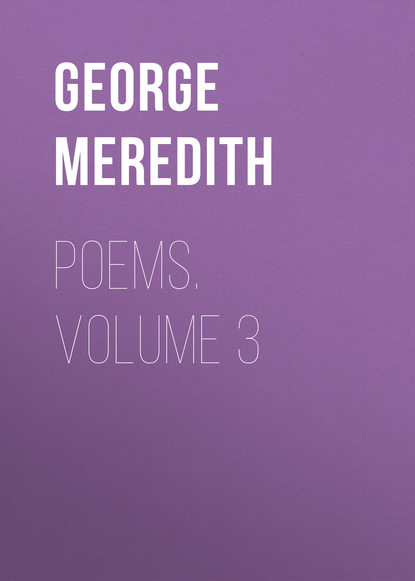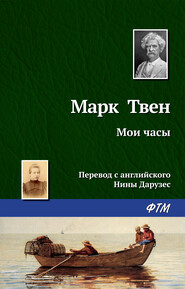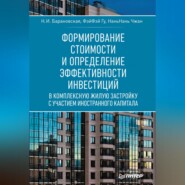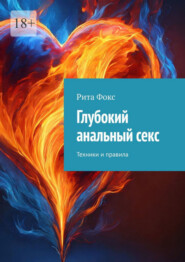 ТекстПолная версия
ТекстПолная версия Celt and Saxon. Volume 1
Полная версия
- О книге
- Читать
Meanwhile he conversed, and seemed, to a gentleman unaware of the vaporous activities of his brain, a young fellow of a certain practical sense.
'We have not much to teach you in: horseflesh,' Mr. Adister said, quitting the stables to proceed to the gardens.
'We must look alive to keep up our breed, sir,' said Patrick. 'We're breeding too fine: and soon we shan't be able to horse our troopers. I call that the land for horses where the cavalry's well-mounted on a native breed.'
'You have your brother's notions of cavalry, have you!'
'I leave it to Philip to boast what cavalry can do on the field. He knows: but he knows that troopers must be mounted: and we're fineing more and more from bone: with the sales to foreigners! and the only chance of their not beating us is that they'll be so good as follow our bad example. Prussia's well horsed, and for the work it's intended to do, the Austrian light cavalry's a model. So I'm told. I'll see for myself. Then we sit our horses too heavy. The Saxon trooper runs headlong to flesh. 'Tis the beer that fattens and swells him. Properly to speak, we've no light cavalry. The French are studying it, and when they take to studying, they come to the fore. I'll pay a visit to their breeding establishments. We've no studying here, and not a scrap of system that I see. All the country seems armed for bullying the facts, till the periodical panic arrives, and then it 's for lying flat and roaring— and we'll drop the curtain, if you please.'
'You say we,' returned Mr. Adister. 'I hear you launched at us English by the captain, your cousin, who has apparently yet to learn that we are one people.'
'We 're held together and a trifle intermixed; I fancy it's we with him and with me when we're talking of army or navy,' said Patrick. 'But Captain Con's a bit of a politician: a poor business, when there's nothing to be done.'
'A very poor business!' Mr. Adister rejoined,
'If you'd have the goodness to kindle his enthusiasm, he'd be for the first person plural, with his cap in the air,' said Patrick.
'I detest enthusiasm.
'You're not obliged to adore it to give it a wakener.
'Pray, what does that mean?'
Patrick cast about to reply to the formal challenge for an explanation.
He began on it as it surged up to him: 'Well, sir, the country that's got hold of us, if we 're not to get loose. We don't count many millions in Europe, and there's no shame in submitting to force majeure, if a stand was once made; and we're mixed up, 'tis true, well or ill; and we're stronger, both of us, united than tearing to strips: and so, there, for the past! so long as we can set our eyes upon something to admire, instead of a bundle squatting fat on a pile of possessions and vowing she won't budge; and taking kicks from a big foot across the Atlantic, and shaking bayonets out of her mob-cap for a little one's cock of the eye at her: and she's all for the fleshpots, and calls the rest of mankind fools because they're not the same: and so long as she can trim her ribands and have her hot toast and tea, with a suspicion of a dram in it, she doesn't mind how heavy she sits: nor that 's not the point, nor 's the land question, nor the potato crop, if only she wore the right sort of face to look at, with a bit of brightness about it, to show an idea inside striking alight from the day that's not yet nodding at us, as the tops of big mountains do: or if she were only braced and gallant, and cried, Ready, though I haven't much outlook! We'd be satisfied with her for a handsome figure. I don't know whether we wouldn't be satisfied with her for politeness in her manners. We'd like her better for a spice of devotion to alight higher up in politics and religion. But the key of the difficulty's a sparkle of enthusiasm. It's part business, and the greater part sentiment. We want a rousing in the heart of us; or else we'd be pleased with her for sitting so as not to overlap us entirely: we'd feel more at home, and behold her more respectfully. We'd see the policy of an honourable union, and be joined to you by more than a telegraphic cable. That's Captain Con, I think, and many like him.'
Patrick finished his airy sketch of the Irish case in a key signifying that he might be one among the many, but unobtrusive.
'Stick to horses!' observed Mr. Adister.
It was pronounced as the termination to sheer maundering.
Patrick talked on the uppermost topic for the remainder of their stroll.
He noticed that his host occasionally allowed himself to say, 'You Irish': and he reflected that the saying, 'You English,' had been hinted as an offence.
He forgot to think that he had possibly provoked this alienation in a scornfully proud spirit. The language of metaphor was to Mr. Adister fool's froth. He conceded the use of it to the Irish and the Welsh as a right that stamped them for what they were by adopting it; and they might look on a country as a 'she,' if it amused them: so long as they were not recalcitrant, they were to be tolerated, they were a part of us; doubtless the nether part, yet not the less a part for which we are bound to exercise a specially considerate care, or else we suffer, for we are sensitive there: this is justice but the indications by fiddle-faddle verbiage of anything objectionable to the whole in the part aroused an irritability that speedily endued him with the sense of sanity opposing lunacy; when, not having a wide command of the undecorated plain speech which enjoyed his approval, he withdrew into the entrenchments of contempt.
Patrick heard enough to let him understand why the lord of Earlsfont and Captain Con were not on the best of terms. Once or twice he had a twinge or suspicion of a sting from the tone of his host, though he was not political and was of a mood to pity the poor gentleman's melancholy state of solitariness, with all his children absent, his wife dead, only a niece, a young lady of twenty, to lend an air of grace and warmth to his home.
She was a Caroline, and as he had never taken a liking to a Caroline, he classed her in the tribe of Carolines. To a Kathleen, an Eveleen, a Nora, or a Bessy, or an Alicia, he would have bowed more cordially on his introduction to her, for these were names with portraits and vistas beyond, that shook leaves of recollection of the happiest of life—the sweet things dreamed undesiringly in opening youth. A Caroline awakened no soft association of fancies, no mysterious heaven and earth. The others had variously tinted skies above them; their features wooed the dream, led it on as the wooded glen leads the eye till we are deep in richness. Nor would he have throbbed had one of any of his favourite names appeared in the place of Caroline Adister. They had not moved his heart, they had only stirred the sources of wonder. An Eveleen had carried him farthest to imagine the splendours of an Adiante, and the announcement of the coming of an Eveleen would perchance have sped a little wild fire, to which what the world calls curiosity is frozenly akin, through his veins.
Mr. Adister had spoken of his niece Caroline. A lacquey, receiving orders from his master, mentioned Miss Adister. There was but one Miss Adister for Patrick. Against reason, he was raised to anticipate the possible beholding of her, and Caroline's entrance into the drawing-room brought him to the ground. Disappointment is a poor term for the descent from an immoderate height, but the acknowledgment that we have shot up irrationally reconciles even unphilosophical youth to the necessity of the fall, though we must continue sensible of a shock. She was the Miss Adister; and how, and why? No one else accompanied them on their march to the dinner-table. Patrick pursued his double task of hunting his thousand speculations and conversing fluently, so that it is not astonishing if, when he retired to his room, the impression made on him by this young Caroline was inefficient to distinguish her from the horde of her baptismal sisters. And she had a pleasant face: he was able to see that, and some individuality in the look of it, the next morning; and then he remembered the niceness of her manners. He supposed her to have been educated where the interfusion of a natural liveliness with a veiling retenue gives the title of lady. She had enjoyed the advantage of having an estimable French lady for her governess, she informed him, as they sauntered together on the terrace.
'A Protestant, of course,' Patrick spoke as he thought.
'Madame Dugue is a Catholic of Catholics, and the most honourable of women.'
'That I'll believe; and wasn't for proselytisms,' said he.
'Oh, no: she was faithful to her trust.'
'Save for the grand example!'
'That,' said Caroline, 'one could strive to imitate without embracing her faith.'
'There's my mind clear as print!' Patrick exclaimed. 'The Faith of my fathers! and any pattern you like for my conduct, if it's a good one.'
Caroline hesitated before she said: 'You have noticed my Uncle Adister's prepossession; I mean, his extreme sensitiveness on that subject.'
'He blazed on me, and he seemed to end by a sort of approval.'
She sighed. 'He has had cause for great unhappiness.'
'Is it the colonel, or the captain? Forgive me!'
Her head shook.
'Is it she? Is it his daughter? I must ask!'
'You have not heard?'
Oh! then, I guessed it,' cried Patrick, with a flash of pride in his arrowy sagacity. 'Not a word have I heard, but I thought it out for myself; because I love my brother, I fancy. And now, if you'll be so good, Miss Caroline, let me beg, it's just the address, or the city, or the country—where she is, can you tell me?—just whereabouts! You're surprised: but I want her address, to be off, to see her; I'm anxious to speak to her. It's anywhere she may be in a ring, only show me the ring, I'll find her, for I've a load; and there's nothing like that for sending you straight, though it's in the dark; it acts like an instinct. But you know the clear address, and won't let me be running blindfold. She's on the Continent and has been a long time, and it was the capital of Austria, which is a Catholic country, and they've Irish blood in the service there, or they had. I could drop on my knees to you!'
The declaration was fortunately hushed by a supplicating ardour, or Mr. Adister would have looked more surprised than his niece. He stepped out of the library window as they were passing, and, evidently with a mind occupied by his own affairs, held up an opened letter for Caroline's perusal. She took a view of the handwriting.
'Any others?' she said.
'You will consider that one enough for the day,' was his answer.
Patrick descended the terrace and strolled by the waterside, grieved at their having bad news, and vexed with himself for being a stranger, unable to console them.
Half an hour later they were all three riding to the market-town, where
Mr. Adister paid a fruitless call on his lawyer.
'And never is at home! never was known to be at home when wanted!' he said, springing back to the saddle.
Caroline murmured some soothing words. They had a perverse effect.
'His partner! yes, his partner is at home, but I do not communicate upon personal business with his partner; and by and by there will be, I suppose, a third partner. I might as well deposit my family history in the hands of a club. His partner is always visible. It is my belief that Camminy has taken a partner that he may act the independent gentleman at his leisure. I, meantime, must continue to be the mark for these letters. I shall expect soon to hear myself abused as the positive cause of the loss of a Crown!'
'Mr. Camminy will probably appear at the dinner hour,' said Caroline.
'Claret attracts him: I wish I could say as much of duty,' rejoined her uncle.
Patrick managed to restrain a bubbling remark on the respective charms of claret and duty, tempting though the occasion was for him to throw in a conversational word or two.
He was rewarded for listening devoutly.
Mr. Adister burst out again: 'And why not come over here to settle this transaction herself?—provided that I am spared the presence of her Schinderhannes! She could very well come. I have now received three letters bearing on this matter within as many months. Down to the sale of her hereditary jewels! I profess no astonishment. The jewels may well go too, if Crydney and Welvas are to go. Disrooted body and soul! —for a moonshine title!—a gaming-table foreign knave!—Known for a knave!—A young gentlewoman?—a wild Welsh . . . !'
Caroline put her horse to a canter, and the exclamations ended, leaving Patrick to shuffle them together and read the riddle they presented, and toss them to the wind, that they might be blown back on him by the powers of air in an intelligible form.
CHAPTER IV
THE PRINCESS
Dinner, and a little piano-music and a song closed an evening that was not dull to Patrick in spite of prolonged silences. The quiet course of things within the house appeared to him to have a listening ear for big events outside. He dreaded a single step in the wrong direction, and therefore forbore to hang on any of his conjectures; for he might perchance be unjust to the blessedest heroine on the surface of the earth—a truly awful thought! Yet her name would no longer bear the speaking of it to himself. It conjured up a smoky moon under confounding eclipse.
Who was Schinderhannes?
Mr. Adister had said, her Schinderhannes.
Patrick merely wished to be informed who the man was, and whether he had a title, and was much of a knave: and particularly Patrick would have liked to be informed of the fellow's religion. But asking was not easy.
It was not possible. And there was a barrel of powder to lay a fiery head on, for a pillow!
To confess that he had not the courage to inquire was as good as an acknowledgment that he knew too much for an innocent questioner. And what did he know? His brother Philip's fair angel forbade him to open the door upon what he knew. He took a peep through fancy's keyhole, and delighted himself to think that he had seen nothing.
After a turbulent night with Schinderhannes, who let him go no earlier than the opening of a December day, Patrick hied away to one of the dusky nooks by the lake for a bracing plunge. He attributed to his desire for it the strange deadness of the atmosphere, and his incapacity to get an idea out of anything he looked on: he had not a sensation of cold till the stinging element gripped him. It is the finest school for the cure of dreamers; two minutes of stout watery battle, with the enemy close all round, laughing, but not the less inveterate, convinced him that, in winter at least, we have only to jump out of our clothes to feel the reality of things in a trice. The dip was sharpening; he could say that his prescription was good for him; his craving to get an idea ceased with it absolutely, and he stood in far better trim to meet his redoubtable adversary of overnight; but the rascal was a bandit and had robbed him of his purse; that was a positive fact; his vision had gone; he felt himself poor and empty and rejoicing in the keenness of his hunger for breakfast, singularly lean. A youth despoiled of his Vision and made sensible by the activity of his physical state that he is a common machine, is eager for meat, for excess of whatsoever you may offer him; he is on the highroad of recklessness, and had it been the bottle instead of Caroline's coffee-cup, Patrick would soon have received a priming for a delivery of views upon the sex, and upon love, and the fools known as lovers, acrid enough to win the applause of cynics.
Boasting was the best relief that a young man not without modesty could find. Mr. Adister complimented him on the robustness of his habits, and Patrick 'would like to hear of the temptation that could keep him from his morning swim.'
Caroline's needle-thrust was provoked:
'Would not Arctic weather deter you, Mr. O'Donnell?' He hummed, and her eyes filled with the sparkle.
'Short of Arctic,' he had to say. 'But a gallop, after an Arctic bath, would soon spin the blood-upon an Esquimaux dog, of course,' he pursued, to anticipate his critic's remark on the absence of horses, with a bow.
She smiled, accepting the mental alertness he fastened on her.
We must perforce be critics of these tear-away wits; which are, moreover, so threadbare to conceal the character! Caroline led him to vaunt his riding and his shooting, and a certain time passed before she perceived that though he responded naturally to her first sly attacks, his gross exaggerations upon them had not been the triumph of absurdity she supposed herself to have evoked.
Конец ознакомительного фрагмента.
Текст предоставлен ООО «ЛитРес».
Прочитайте эту книгу целиком, купив полную легальную версию на ЛитРес.
Безопасно оплатить книгу можно банковской картой Visa, MasterCard, Maestro, со счета мобильного телефона, с платежного терминала, в салоне МТС или Связной, через PayPal, WebMoney, Яндекс.Деньги, QIWI Кошелек, бонусными картами или другим удобным Вам способом.
























